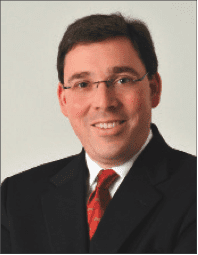By Michael J. Sacopulos, JD
New FSMB guidelines seek to curb doctors’ inappropriate online behavior
The Federation of State Medical Board Examiners (FSMB) is cracking down on how physicians and practices use social media.
 |
As the umbrella agency for the nation’s state medical boards, the FSMB has issued new guidelines stating that state medical boards can discipline physicians for unprofessional behavior relating to the inappropriate use of social networking media, such as:
- Inappropriate communication with patients online;
- Use of the Internet for unprofessional behavior;
- Online misrepresentation of credentials;
- Online violations of patient confidentiality;
- Failure to reveal conflicts of interest online;
- Online derogatory remarks regarding a patient;
- Online depiction of intoxication; and
- Discriminatory language or practices online.
“There is a great deal of good that can come from physicians being able to reach out to patients online, and vice versa,” says FSMB CEO Humayun Chaudhry, DO, who is based in Euless, Texas. But “It should be done in a cautious manner so that certain provisions are protected by patient privacy. Online confidentiality and professionalism need to remain as if it were a bedside encounter.”
A number of physician specialty organizations have policies in place on how physicians should interact with patients, but they need to be updated to include virtual interactions via social media. The FSMB has partnered with the American College of Physicians and plans to release a joint policy paper in the near future.
DOCTORS BEHAVING BADLY
The new FSMB guidelines warn physicians that any information they post on a social networking site may go viral, and could be taken out of context and/or remain publicly available in cyberspace in perpetuity.
When posting content online, doctors should always remember that they are representing the medical community.
Unfortunately, this is not always the case. In a letter published in the February 2011 issue of the Journal of the American Medical Association, a group of doctors analyzed the Twitter habits of 260 physicians who had at least 500 followers. Half of the tweets were related to health or medicine, and 12% were self-promotional in nature. Around 3% were flagged as “unprofessional,” meaning they either contained profanity or discriminatory statements or represented a violation of a patient’s privacy.
Increasingly, there are consequences of this type of unprofessional behavior.
Last year, the Rhode Island Board of Medicine fined an emergency department physician $500 for “unprofessional conduct” because she posted patient information on Facebook. Physicians aren’t the only ones violating HIPAA rules. Nurses are also offenders. Around the same time last year, emergency nurses and staff from St Mary’s Medical Center in Los Angeles posted a photo of someone who had been stabbed on Facebook. The patient died soon after the photo was taken. A month later, a nursing assistant in Indiana took a photo of a paraplegic’s posterior after he had a bowel movement and posted it on Facebook.
Hopefully, the new guidelines will further rein in such behavior and at least make doctors think before they share.
“A violation of the guidelines will not be met with understanding and kindness,” Chaudry says.
According to the guidelines, physician employees of health care institutions should be aware that their employers may reserve the right to edit, modify, delete, or review Internet communications. Physician writers assume all risks related to the security, privacy, and confidentiality of their posts. The FSMB guidelines do not address physician oversight of staff.
The guidelines are really about awareness and education. “Just be aware that anything you post has a permanency,” Chaudhry says. “Being aware of that shouldn’t turn people off from using technology but should add a measure of caution that wouldn’t be there otherwise.”
 Michael J. Sacopulos, JD, is the CEO of Medical Risk Institute (MRI) and serves as general counsel for Medical Justice Services. Additionally, he is the legal analyst for several national publications, including Plastic Surgery Practice. He may be reached via [email protected]. |




